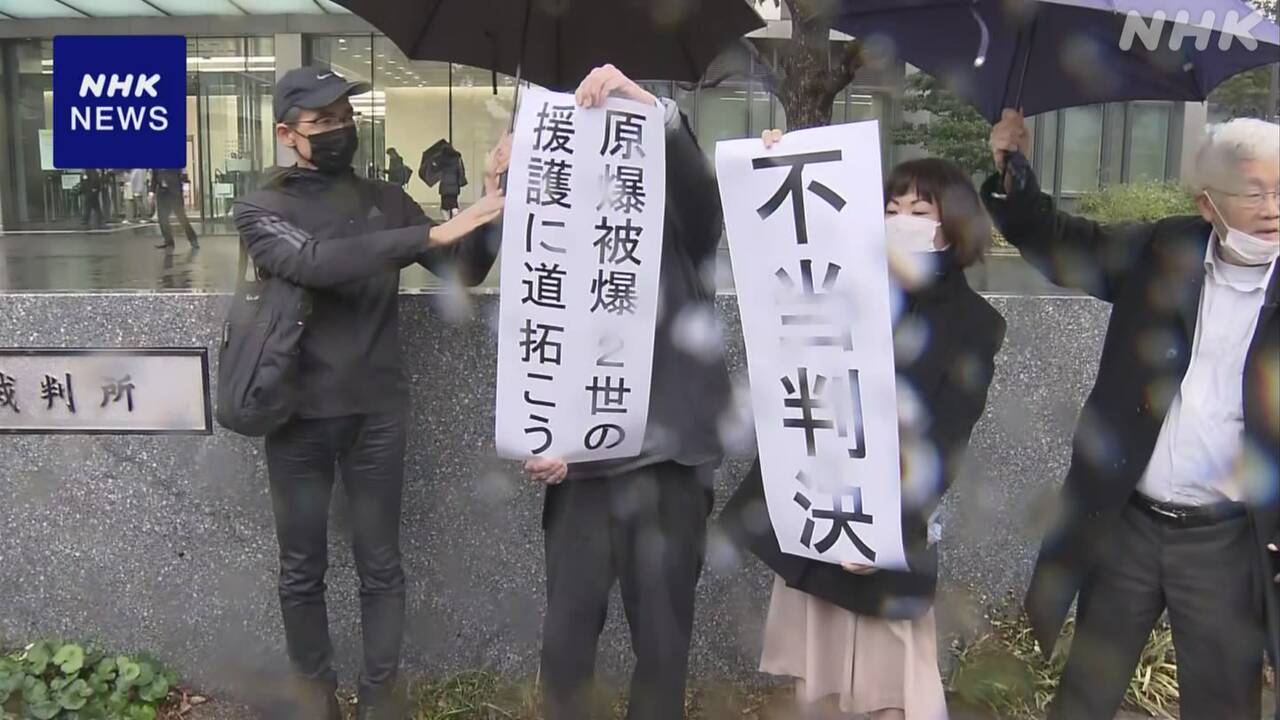In a case in which a second-generation atomic bomb survivor whose parents were survivors of the atomic bombing in Nagasaki sued the government, claiming that it was unconstitutional to not be covered by the law stipulating support for atomic bomb survivors. The Fukuoka High Court ruled in the first instance that "there is no proof that the second-generation atomic bomb survivors are genetically affected by radiation from the atomic bomb. Not providing them with the same support as atomic bomb survivors cannot be considered discriminatory treatment and does not violate the Constitution." The suit was subsequently dismissed.
The government provides support to A-bomb survivors, such as eliminating the need to pay out-of-pocket medical costs, based on the Atomic Bomb Survivor Support Act, but this law does not apply to second-generation A-bomb survivors whose parents were A-bomb survivors. yeah.
Regarding this, 28 people, including second-generation survivors of the atomic bombing in Nagasaki, argue, ``It is a violation of the Constitution, which stipulates equality under the law, that they are not eligible for assistance even though the possibility of genetic effects from radiation cannot be denied.'' and sought compensation from the state.
The Nagasaki District Court, which held the first trial, dismissed the lawsuit a year ago, saying, ``The possibility of genetic influence cannot be denied,'' and the plaintiffs filed an appeal.
In the second-instance judgment on the 29th, Fukuoka High Court Chief Judge Junhisa Takase stated, ``For second-generation atomic bomb survivors, genetic effects of radiation from the atomic bomb have not been proven. "There are significant differences in the current state of medical and scientific knowledge," he said.
Following the first instance, he dismissed the lawsuit, arguing that ``not including them in the same category as A-bomb survivors and others cannot be considered discriminatory treatment and does not violate the Constitution.''
What is a “second-generation atomic bomb survivor”?
"Second-generation atomic bomb survivors" are those whose parents or parents were survivors of the atomic bomb, approximately 10 months after the atomic bomb was dropped, in the case of Hiroshima, on or after June 1, 1945, and in the case of Nagasaki, on or after June 4, 1945. It is estimated that there are several hundred thousand people nationwide who were born after 1999, but the exact number is unknown.
▽The government covers the medical expenses for ``atomic bomb survivors'' based on the Atomic Bomb Survivor Relief Act, while ``
second-generation atomic bomb survivors'' can only receive a basic medical checkup once a year for free.
Among the second-generation atomic bomb survivors, there are many who are concerned about their health and other concerns about whether their parents' exposure to the atomic bomb has affected them in some way.
Seven years ago, in 2017, second-generation atomic bomb survivors filed suit in Hiroshima and Nagasaki, arguing that they should be included in the protection provided by the Atomic Bomb Survivors Relief Act. Last year, each case was dismissed, and the plaintiffs have appealed in both cases.

